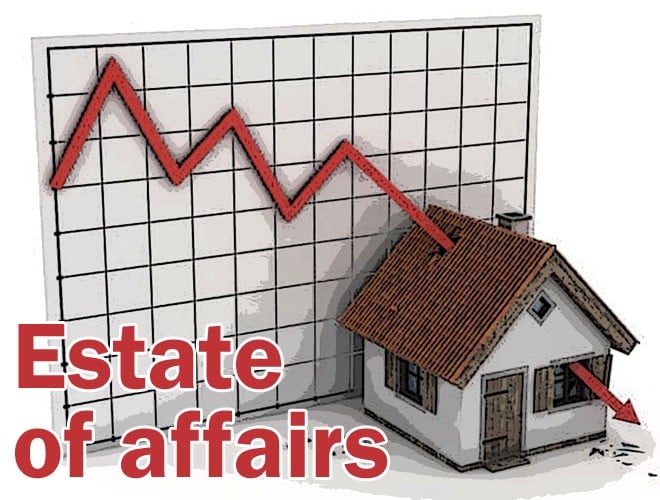
Real estate tax measures need to be thought through and not appear as a bolt from the blue

The figures are staggering. According to one estimate, the real estate market in Pakistan is valued at over 7 trillion rupees. This market is known to attract most investment in the country, most of it in the form of black money or speculation. Empires have been erected on the strength of real estate alone.
Yet, the booming business has not been adding a substantial sum to the government’s revenue.
Like anywhere else in the world, the government thought it wise to tax this sector. To start with, it had to do away with the old valuation system under which the property was valued under the extremely suppressed deputy commissioner rates and not the market rates. After an amendment to the Income Tax Ordinance 2001 was effected, the State Bank of Pakistan was entrusted the task of evaluating the market value and refer it to the Federal Board of Revenue.
According to another estimate, the federal government aims to reap about Rs70 billion annually in terms of revenue from this sector. But its decision is aimed at doing several things -- besides increasing revenue, it wants to document the sector, discourage speculation and black money in the real estate sector and direct investment to the more performing sectors of economy like manufacturing, etc.
Read also: Estate of affairs
On paper, this all looks good and a major exercise has already been carried out before announcing fair market values of property in 18 districts. On ground, the market has come to a standstill and there has been practically no business in the last two months. Our Special Report today aims to look at the nitty gritty of what the government decision is all about and how do various stakeholders feel about it.
There is a sense that the government has slackened the initial radical measures. But the market has still not recovered from the shock of this sudden government intervention. The stakeholders do feel that they were not taken on board and, thus, the only growing sector is now feeling the crunch.
It is too early to judge the exact impact of the government’s decision. In principle, all governments need taxes and must tax businesses. But these measures need to be thought through and not appear as a bolt from the blue.